

Terryel Hu is an advisor on organizational performance and decision-making. He has designed and delivered capability-led strategies for companies, universities, and governments, reaching more than 100,000 employees and driving double-digit performance improvements. Terryel has also taught at universities and institutions in Australia and the US, bridging academic research with industry. He holds a PhD specializing in Strategy and Organizational Behavior.
Available For: Advising, Consulting
Travels From: Australia
Speaking Topics: Organizational Capability and Performance
| Terryel Hu, Ph.D. | Points |
|---|---|
| Academic | 120 |
| Author | 83 |
| Influencer | 18 |
| Speaker | 4 |
| Entrepreneur | 76 |
| Total | 301 |
Points based upon Thinkers360 patent-pending algorithm.
 Learn to Lead with UNSW 2024
Learn to Lead with UNSW 2024
Tags: Future of Work, Leadership, Management
 Graduate Certificate in Educational Research
Graduate Certificate in Educational Research
Tags: Change Management, Management
 Master of Education (Leadership, Policy and Change Management)
Master of Education (Leadership, Policy and Change Management)
Tags: Change Management, Leadership, Management
 Hong Kong Baptist University
Hong Kong Baptist University
Tags: Business Strategy, Management, Marketing
 University of Canberra
University of Canberra
Tags: Business Strategy, Management, Marketing
Tags: Innovation, Leadership, Management
 Embracing uncertainty in business transformation
Embracing uncertainty in business transformation
Tags: Digital Transformation, Leadership, Management
 Leading Transformation Without The Perfect Solution: Why Experimentation Is The Strategy
Leading Transformation Without The Perfect Solution: Why Experimentation Is The Strategy
Tags: Digital Transformation, Leadership, Management
 The Great Misalignment In Business Transformation
The Great Misalignment In Business Transformation
Tags: AI Governance, Digital Transformation, Management
 Approaching Uncertainty and Risk without Spiralling Out of Control
Approaching Uncertainty and Risk without Spiralling Out of Control
Tags: Change Management, Leadership, Management
 Why AI M&A Deals Fail: 3 questions Every Buyer Must Ask
Why AI M&A Deals Fail: 3 questions Every Buyer Must Ask
Tags: AI Governance, Management, Mergers and Acquisitions
 Data Capability Must Be Defined: What Does It Actually Do?
Data Capability Must Be Defined: What Does It Actually Do?
Tags: Change Management, Leadership, Management
 Business Transformation: Leading With Vision, Delivering Through Experimentation
Business Transformation: Leading With Vision, Delivering Through Experimentation
Tags: Leadership, Management, Transformation
 AI is Winning Against Call Centers Yet Human Drivers Remain Essential
AI is Winning Against Call Centers Yet Human Drivers Remain Essential
Tags: AI, Innovation, Management
 On Leadership: Balancing a Healthy Dose of Ego and “Winning at All Costs”
On Leadership: Balancing a Healthy Dose of Ego and “Winning at All Costs”
Tags: Innovation, Leadership, Management
 Australia’s Future Depends on Improving Its Core Industries - AI Comes Later
Australia’s Future Depends on Improving Its Core Industries - AI Comes Later
Tags: Leadership, Management, Smart Cities
 5 Ways Business Transformation Leaders Can Avoid Innovation Theater
5 Ways Business Transformation Leaders Can Avoid Innovation Theater
Tags: Digital Transformation, Innovation, Management
 Business Transformation Leaders and Laggards: Separated by Centuries, Not Decades
Business Transformation Leaders and Laggards: Separated by Centuries, Not Decades
Tags: Digital Transformation, Leadership, Management
 Before You Innovate, Try Looking Out the Window First
Before You Innovate, Try Looking Out the Window First
Tags: Digital Transformation, Innovation, Management
 The Missed Potential of AI: Finding Problems Worth Solving with Agentic AI
The Missed Potential of AI: Finding Problems Worth Solving with Agentic AI
Tags: AI, Digital Transformation, Management
 Why Acquisitions Are Only the Beginning of Business Transformation
Why Acquisitions Are Only the Beginning of Business Transformation
Tags: Digital Transformation, Management, Mergers and Acquisitions
 On Leadership: The Unexpected Danger of “Winning at All Costs”
On Leadership: The Unexpected Danger of “Winning at All Costs”
Tags: Education, Leadership, Management
 Leaders Can’t Afford to Wait Until Bureaucracy Stalls Progress
Leaders Can’t Afford to Wait Until Bureaucracy Stalls Progress
Tags: Digital Transformation, Leadership, Management
 How Risk Aversion Stalls Progress
How Risk Aversion Stalls Progress
Tags: Digital Transformation, Leadership, Management
 The Perfect Solution Myth: Why ‘Good Enough’ Can Drive Digital Transformation
The Perfect Solution Myth: Why ‘Good Enough’ Can Drive Digital Transformation
Tags: Digital Transformation, Leadership, Management
 Rethinking the Value of an MBA
Rethinking the Value of an MBA
Tags: Education, Leadership, Management
 Avoiding Digital Chaos: How to Prevent Complexity from Killing Transformation
Avoiding Digital Chaos: How to Prevent Complexity from Killing Transformation
Tags: Digital Transformation, Management, Mergers and Acquisitions
 Does HR Have a Credibility Crisis?
Does HR Have a Credibility Crisis?
Tags: Innovation, Leadership, Management
 Strengthening Critical Thinking for High Performance
Strengthening Critical Thinking for High Performance
Tags: Education, Leadership, Management
 Stop Using Excel for Everything: A Leadership Wake-Up Call
Stop Using Excel for Everything: A Leadership Wake-Up Call
Tags: Change Management, Leadership, Management
 On Motivating Employees
On Motivating Employees
Tags: Future of Work, Leadership, Management
 Modernizing the Workforce: Some Ghettos Aren’t Meant to Be Gentrified
Modernizing the Workforce: Some Ghettos Aren’t Meant to Be Gentrified
Tags: Leadership, Management, AGI
 Strategy Is Not About Forcing Everything Into a Box
Strategy Is Not About Forcing Everything Into a Box
Tags: Leadership, Management
 How We Misjudge Luck
How We Misjudge Luck
Tags: Leadership, Management
 Want to Lead Gen Z? Start With Principles, Not Ping Pong Tables
Want to Lead Gen Z? Start With Principles, Not Ping Pong Tables
Tags: Leadership, Management
 Archetypes Still Shape How We See Leaders
Archetypes Still Shape How We See Leaders
Tags: Leadership, Management
 Managing Assumptions: The Hidden Barrier to Effective Learning
Managing Assumptions: The Hidden Barrier to Effective Learning
Tags: Leadership, Management, AGI
 Being Fast Isn’t the Same as Being Good
Being Fast Isn’t the Same as Being Good
Tags: Leadership, Management
 3 Sources of Learning to Push Past Your Team’s Performance Plateau
3 Sources of Learning to Push Past Your Team’s Performance Plateau
Tags: Leadership, Management
 How Risk Aversion Stalls Progress
How Risk Aversion Stalls Progress
Tags: Leadership, Management
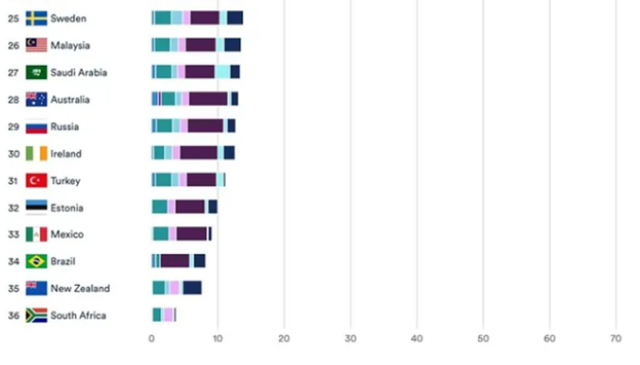 Australia’s Future Depends on Improving Its Core Industries, AI Comes Later
Australia’s Future Depends on Improving Its Core Industries, AI Comes Later
Tags: Leadership, Management
 Planning Works Better When It’s a Team Sport
Planning Works Better When It’s a Team Sport
Tags: Leadership, Management
 Approaching Uncertainty and Risk without Spiraling Out of Control
Approaching Uncertainty and Risk without Spiraling Out of Control
Tags: Leadership, Management
 The Strategic Gamble: Ukraine’s Future Amid War and Peace
The Strategic Gamble: Ukraine’s Future Amid War and Peace
Tags: Leadership, Management
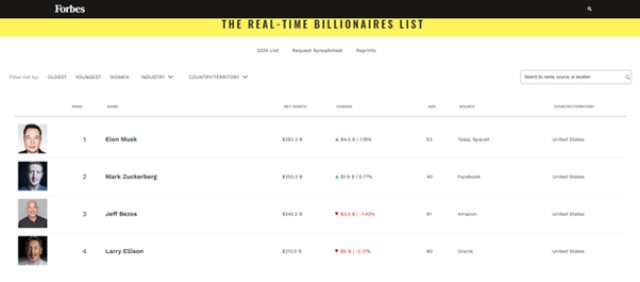 Elon Musk and First Principle-Thinking
Elon Musk and First Principle-Thinking
Tags: Leadership, Management
 Can AI surpass human intelligence in a meaningful way?
Can AI surpass human intelligence in a meaningful way?
Tags: Leadership, Management
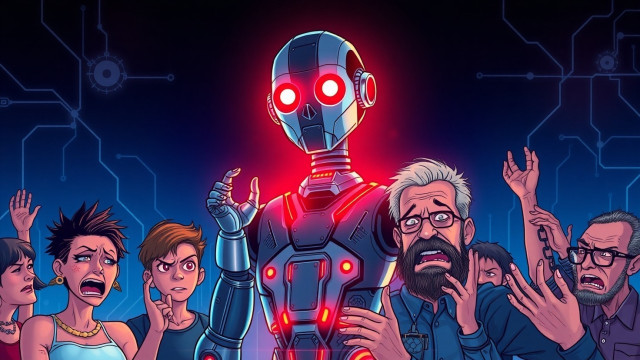 AI is Impressive but Misguided
AI is Impressive but Misguided
Tags: AI Governance, Management
Tags: Innovation, Leadership, Management
 Readiness Tracker
Readiness Tracker
Tags: Change Management, Digital Transformation, Management
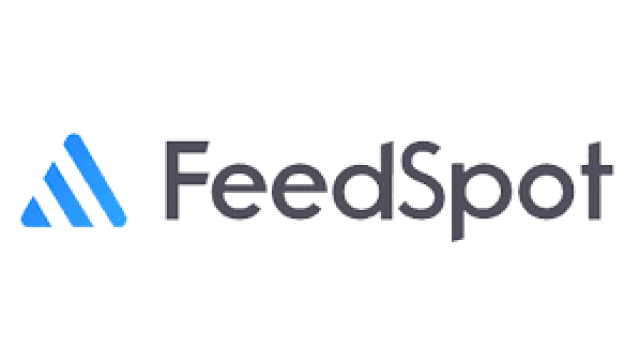 Feedspot "80 Best Digital Transformation Blogs and Websites in 2025"
Feedspot "80 Best Digital Transformation Blogs and Websites in 2025"
Tags: Digital Transformation
 Number 2 Product of the Week
Number 2 Product of the Week
Tags: Management
 Readiness Tracker - Featured on AlternativeTo
Readiness Tracker - Featured on AlternativeTo
Tags: Change Management, Digital Transformation, Management
 Indie Hackers - Product Feature
Indie Hackers - Product Feature
Tags: Change Management, Digital Transformation, Management
 Readiness Tracker launched on Product Hunt
Readiness Tracker launched on Product Hunt
Tags: Change Management, Digital Transformation, Management
 SaaSHub
SaaSHub
Tags: Change Management, Digital Transformation, Management
Issued Aug, 2023 – Expires Oct, 2026
Credential ID GR656304148YH
Tags: Project Management
 Associate
Associate
Issued Jun, 2018 – Expired Jul, 2019
Credential ID 129852
Tags: Change Management, Leadership, Management
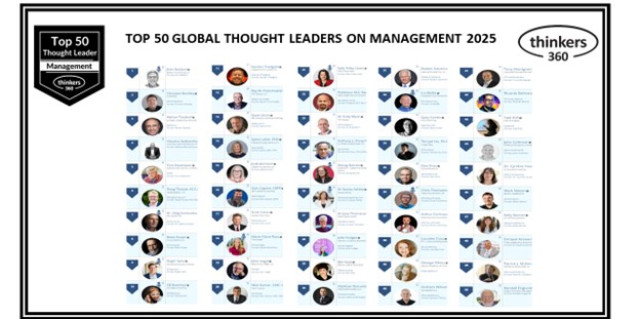 Thinkers360 Top 50 Thought Leader on Management
Thinkers360 Top 50 Thought Leader on Management
Tags: Management
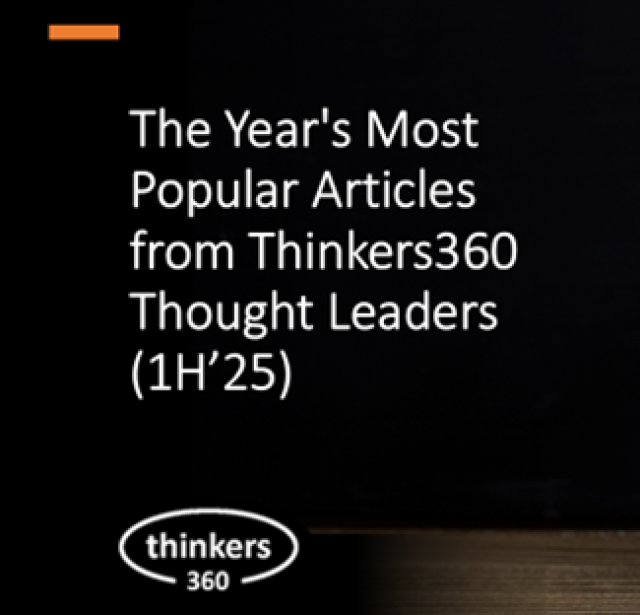 Most Popular Articles from Thinkers360
Most Popular Articles from Thinkers360
Tags: Management
 Top 50 (#17) Creators - Productivity & Personal Growth - Linkedin - Australia
Top 50 (#17) Creators - Productivity & Personal Growth - Linkedin - Australia
Tags: Management
Tags: Leadership
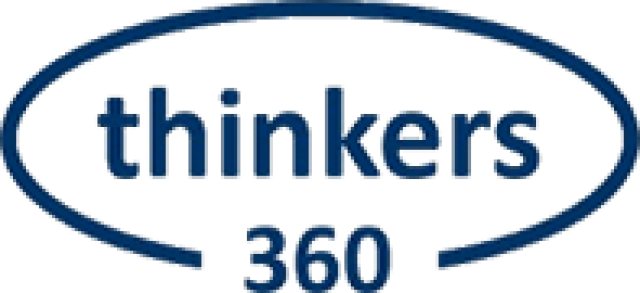 Why Acquisitions Are Only the Beginning of Business Transformation
Why Acquisitions Are Only the Beginning of Business Transformation
Tags: Digital Transformation, Management, Mergers and Acquisitions
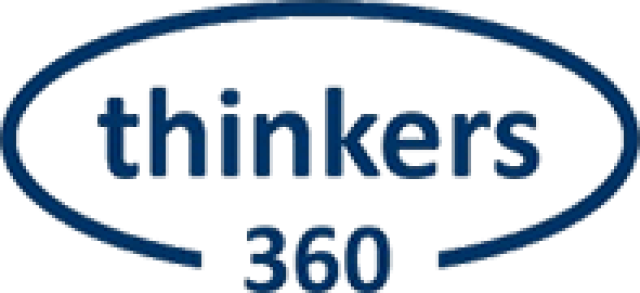 AI is Impressive but Misguided
AI is Impressive but Misguided
Tags: Digital Transformation, Leadership, Management
 Cutting through the AI Hype: Focus on Capabilities That Truly Matter
Cutting through the AI Hype: Focus on Capabilities That Truly Matter
Tags: Digital Transformation, Leadership, Management
 Taught strategy, leadership and management at the Australia Defence Force Academy
Taught strategy, leadership and management at the Australia Defence Force Academy
Tags: Business Strategy, Leadership, Management
Tags: Business Strategy, Leadership, Management
Tags: Business Strategy, Leadership, Management
Tags: Business Strategy, Leadership, Management
 Radio Feature on 92.3FM
Radio Feature on 92.3FM
Tags: Change Management, Leadership, Management
Tags: Digital Transformation, Management
 Responsible AI Institute
Responsible AI Institute
Tags: AI, Leadership, Management
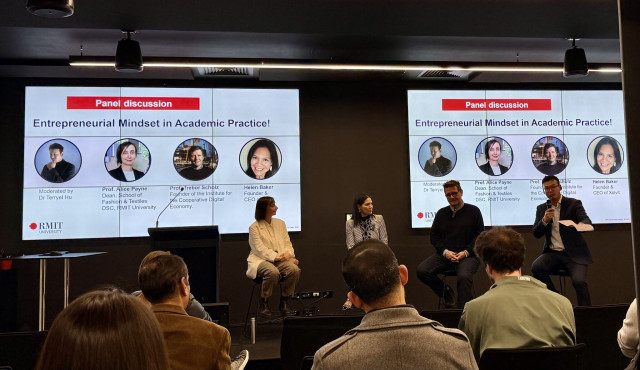 RMIT Entrepreneurial Academics Network (REAN)
RMIT Entrepreneurial Academics Network (REAN)
Tags: Future of Work, Innovation, Management
 Firm offers a variety of services, including e-learning packages and ergonomic assessments
Firm offers a variety of services, including e-learning packages and ergonomic assessments
Tags: Digital Transformation
Tags: Leadership, Management, Marketing
Tags: Business Strategy, Leadership, Management
Tags: Innovation, Management, Product Management
Date : October 08, 2025
Date : March 20, 2025
 Planning Works Better When It’s a Team Sport
Planning Works Better When It’s a Team Sport
I was recently at a board meeting where a group of executives from a small financial services company gathered to discuss AI. This wasn’t just an idea - they were committed to making investments in something tangible. Like many, they were drawn to the concept after noticing announcements made by competitors. They’d made a remarkable move by staying in tune with the market. They understood the changing landscape and gathered their most experienced directors for this meeting.
The meeting was productive, to say the least. Each division leader was tasked with creating a roadmap. Towards the end of the meeting, each leader was asked about their approach. They were able to walk through their plans in incredible detail. They congratulated one another, headed back to their teams, and began creating the plan.
Then it struck me. The executives, though brilliant, were creating a plan in isolation. They could provide the roadmap to product–market hypotheses, experimentation, prototyping, and launch. The members at that meeting were clearly more innovative than most. However, they developed a plan isolated from other parts of the business. There was little input from IT, marketing, or the people servicing their products.
I asked one of the division leaders what his team thought. He said they were thrilled with the initiative. That success, however, was short-lived. The technical teams realized the company lacked the infrastructure to execute the “AI initiative.” They also encountered errors that were unrecognizable during the trial phase.
So their plan eventually hit a roadblock. That’s normal. The surprising part was that they planned in isolation. The more brilliant the plan appeared, the less they sought validation from others.
Here's what's happening: The more consensus an idea gets, the more one feels confident planning it alone. It can be misinterpreted as a sign to continue. But a “yes” in such cases is only a half-truth. A “yes” from an IT department does not mean “yes, we can do it.” Similarly, when a marketing team says, “Yes, AI is a game-changer!” it doesn’t mean the company can actually deliver it.
Adding the word “strategic” in front of planning has perhaps made it worse. People have come to take “strategic planning” to mean “a plan that’s limited to the strategy table.” That might work in some instances, but it rarely proves successful in large companies where the product depends on several departments. Too often, plans are formulated at the top, and it’s expected that the rest of the organization will implement them.
Even though this top-down approach never goes as smoothly as planned, it remains the primary method companies use to encourage employees to adopt technology. Here’s what it looks like: A new initiative is created by top management teams. Employees are told that the new way of working will bring opportunities. If they show resistance, it must be overcome through a mix of frameworks and surveys. If the technology isn’t adopted, the company reframes it as a compliance issue.
How does this top-down approach lead to isolated planning? Well, if you look at those activities, you’ll notice that the process can be carried out by a single person. That’s what I’ve repeatedly seen. That one person carries out the plan with minimal contact from others. They accept the “yes” and ignore those who say “no”. They continue down this track due to fear of uncertainty or, at worst, the fear of being wrong. In doing so, they avoid valuable feedback and miss out on the opportunities to improve the success of the plan. Those working in competitive industries know this well - they view every piece of feedback as a chance to outshine competitors.
If we want initiatives to succeed, we must treat strategic planning not as a solo project, but as a team sport. After all, no one wins alone. We often call it “strategic planning” because it’s formulated at the boardroom table, but that doesn’t prevent the planning process from being collaborative and problem-driven. The planning, no matter how brilliant, will fall short if developed in isolation. To succeed, we must consider the contributions of other teams - whether it’s IT, marketing, operations, or frontline employees - and what roles they play.
Tags: Digital Transformation, Leadership, Management
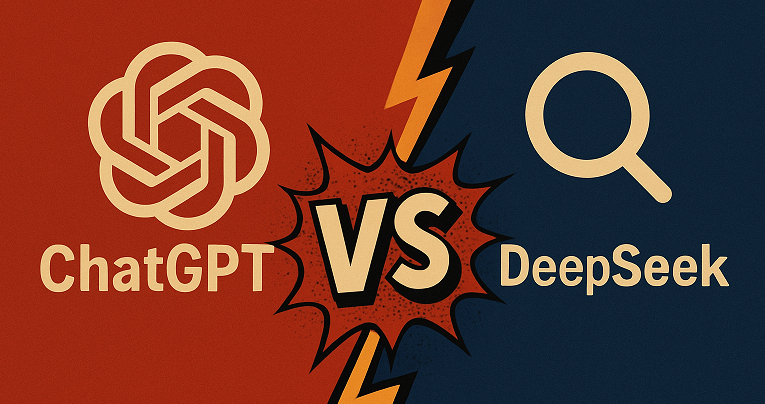 The Real AI Race: Rules, Not Tech
The Real AI Race: Rules, Not Tech
The heavy-handed approach would be to block governments and civilians from DeepSeek. The United States, South Korea, Australia and Italy have imposed some form of ban on DeepSeek. China already has a censorship policy which blocks Google, YouTube, Vimeo, Facebook, Yahoo, Wikipedia, Reddit, Netflix, Spotify, Steam, Linkedin, X (Twitter) and Skype. Major news media sites are also blocked.
Western countries are not banning it due to racism, nor a full-blown arms race. The reality is that the adoption of AI depends on how well we can regulate it. It involves understanding the benefits and risks. Does data privacy, storage and handling align with the security standards of our nation? What is its social and economic impact? Do the benefits outweigh the costs? These are questions that policymakers normally ask. However, the capabilities of AI have outpaced our ability to address these questions. There are too many unknowns, and that is where the AI hype meets reality.
One of the barriers that will stop DeepSeek, or any foreign technology, will be the security risks that it imposes. It so happens that DeepSeek is from China, a global superpower, that is in direct competition with the US. But if we look at the other AI competitors, it’s only a matter of time before other countries release their version of Open AI. It won’t be a race to limit each other’s progress, but a race to create “rules of the game”. They need proper AI policies and frameworks to compete.
Tags: AI, Management, Leadership
 Beyond the Plan: Why Strategy Is a Continuous Learning Process
Beyond the Plan: Why Strategy Is a Continuous Learning Process
Strategy is often seen as a static roadmap, but in reality, it is a continuous learning process. The best organizations don’t expect their plans to stay fixed. They move forward by learning and discovering new ways to improve business performance. In practice, no one implements a plan without expecting it to change. Although many agile practices have become faddish, it has one principle that remains relevant today: It’s naïve to expect the world to stay still while you write up a plan.
Having a fixed plan is wishful thinking. Top innovators will know that, by the time they finish writing a plan, the variables will have changed. To use a sports analogy, strategy can be considered the gameplay. Like any competitive sport, that gameplay evolves as the team gain new insights, tests ideas, and adapts to unexpected moves from the opposition.
Traditional strategy still conjures images of boardroom meetings, long-term plans, and rigid frameworks. Companies that cling to outdated processes risk irrelevance in fast-moving industries and will see their favorite tools become obsolete. The classic red, yellow and green risk chart doesn’t seem to respond well to the changes in AI capability. How would they assess the impact of AI, if we are unsure of its capabilities? Should Agentic AI be medium or high risk? How will they assess the risk of LLMs when it never existed in their industry? In such cases, strategy should not be a fixed blueprint but instead a dynamic process of discovery and refinement.
A strategy around ‘discovery and refinement’ is still very intentional. For example, some companies launch pilot programs or prototypes to test market responses before committing to full-scale implementation. Others prefer iterative processes, where small teams experiment with different solutions, gather user feedback, and adjust their products. Maintaining this cycle of discovery and refinement is also called organizational learning.
Senge’s learning organization emphasizes five traits that companies should cultivate and where continuous learning is embedded into the culture.
Effective leaders understand that strategy is not a one-time event but a continuous journey of learning and adaptation. The smartest strategy is the one that keeps evolving. As business environments grow increasingly complex, the ability to learn faster than competitors will define the winners.
Tags: Innovation, Management, Leadership
 Embracing uncertainty in business transformation
Embracing uncertainty in business transformation Modernizing the Workforce: Some Ghettos Aren’t Meant to Be Gentrified
Modernizing the Workforce: Some Ghettos Aren’t Meant to Be Gentrified Strategy Is Not About Forcing Everything Into a Box
Strategy Is Not About Forcing Everything Into a Box Planning Works Better When It’s a Team Sport
Planning Works Better When It’s a Team Sport The Real AI Race: Rules, Not Tech
The Real AI Race: Rules, Not Tech Beyond the Plan: Why Strategy Is a Continuous Learning Process
Beyond the Plan: Why Strategy Is a Continuous Learning Process